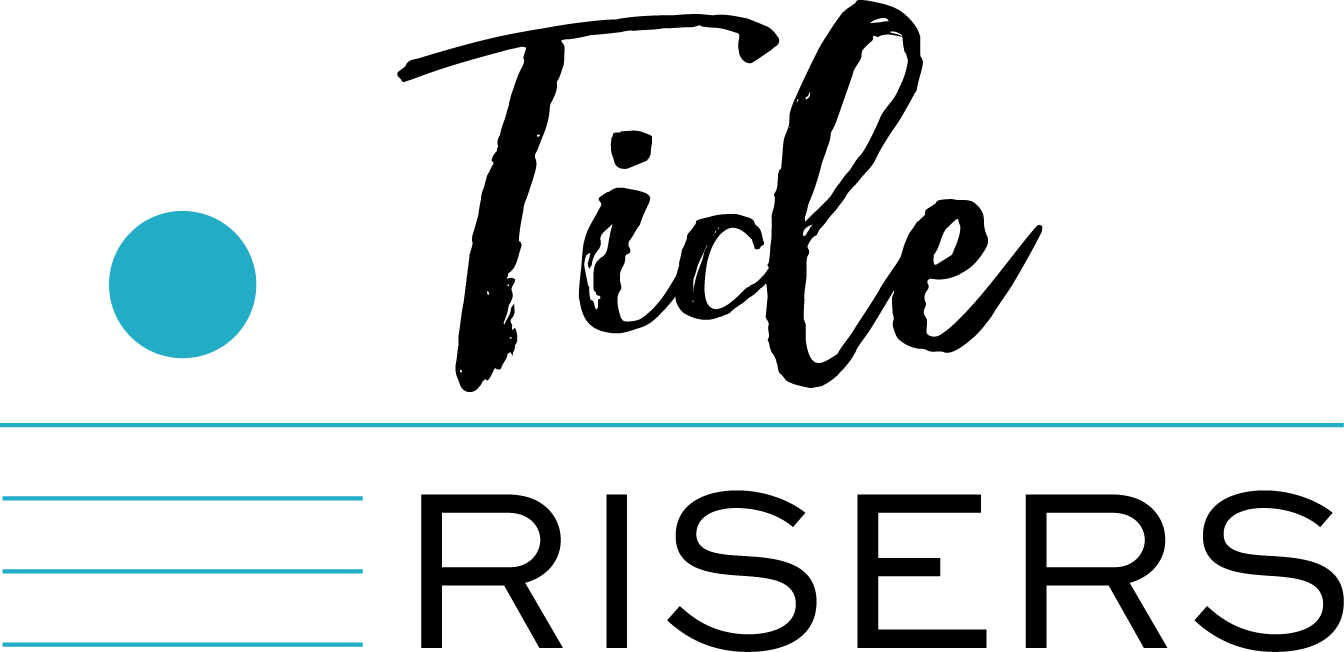Facilitating Empathy-Driven Meetings
In our Tide Risers Foundations program, we thoughtfully assign every member to a small BeSpoke Group of three to four women. These women collaborate throughout their Tide Risers experience to help one another deepen and extend their learning and to serve as accountability partners. These groups are cornerstones of the Tide Risers experience, and often hang together for years.
BeSpoke Groups are self-facilitated, meaning that every member shares the responsibility of ensuring that meetings are respectful, focused, and empathy-driven. Our Tide Risers Leadership Principles serve as the north star for our members do this important self-facilitation work.
The following guide to group facilitation also assists Tide Risers in facilitating their BeSpoke Groups. This guide is based on my experience of many years of facilitating a range of different types of groups, and I share it with the hopes that you might incorporate some of these guidelines to assist you in enabling respectful, focused, and empathy-driven meetings.
Your job as a facilitator is to hold space.
This is a complex role, and not an easily defined one. To me it means that you are there to make a protective environment for the group so that each person can feel comfortable bringing their authentic self to the table. I imagine this as a protective gelatinous bubble I construct around us physically, even if we’re on Zoom. I actually visualize the bubble when I’m facilitating, and that helps me remember the role I need to be playing to hold space for our members.
Ensure that everyone in the room has the opportunity to be heard.
What makes that difficult is that you may need to ask some participants to keep their thoughts to themselves for a time to enable others to have the space to speak up. Sometimes that means saying something like ‘I’d like to hear some new voices.’ or ‘Is there anyone we haven’t yet heard from who would like to share?’.
Be comfortable with silence.
If you ask a question or offer a prompt and no one jumps in, don’t rush into filling the space with your own voice. Some people need more time to lift their voice, so give them time for that.
Use active listening.
Avoid giving advice, and instead focus on asking curious questions to help the speaker uncover new learning for themselves. You’re not there to be the expert; you’re there to help participants find their own expertise.
Take a break to get back on track.
When you encounter conflict, unproductive and distracting conversation, or hurtful comments, it’s your job to get the conversation back on track in a way that does not shame anyone.
I have a technique I have learned from Quaker business practices, which is to ask for a moment of silence when it feels like the discussion is getting away from you. Quakers are trained in this practice, and know that when a facilitator asks for a moment of silence, that’s the opportunity to center and reflect on a productive way forward. But I find this works for non-Quaker groups as well, as long as you give context. You can say something like: ‘I feel like we’re getting away from our agenda/purpose/objective. Could we please take a moment of silence so that we can refocus our energy around the topic at hand?’ Then really give it some time. Count to 60 slowly and let the silence seep in. Then thank everyone for the silence, and ask if anyone has any reflections they would like to share.

